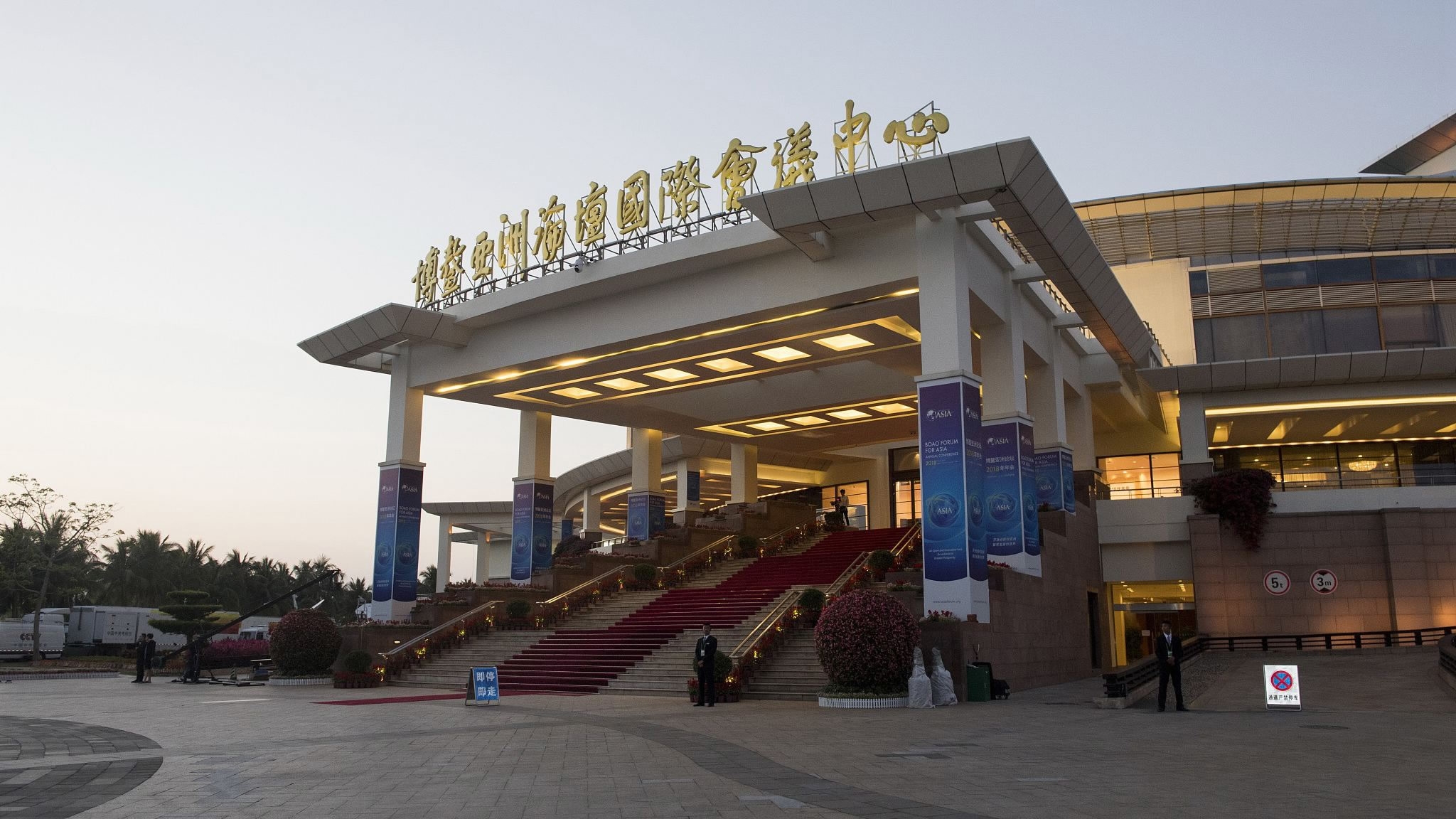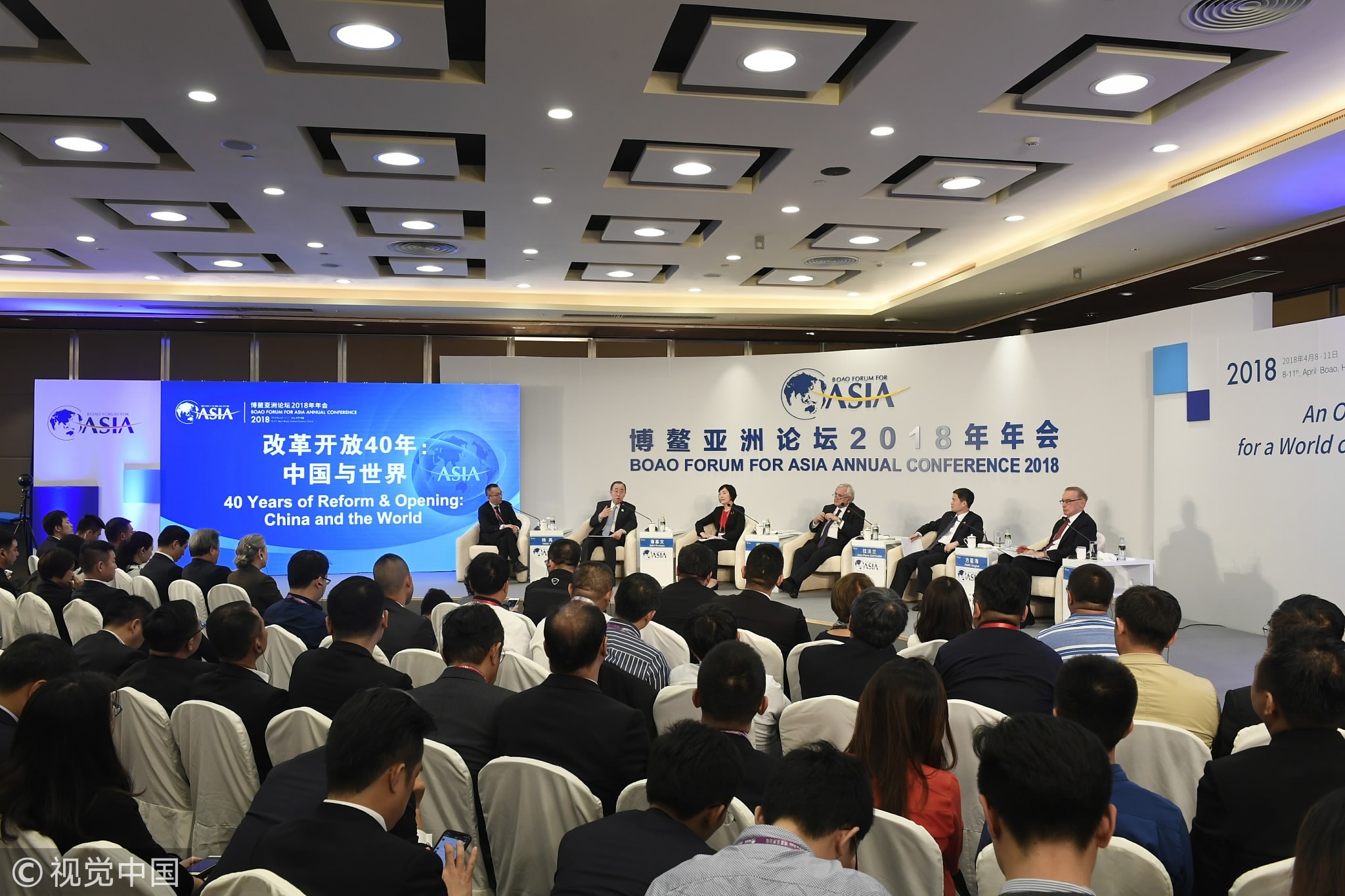
Opinions
10:07, 13-Apr-2018
Opinion: China’s new opening-up policies have nothing to do with external pressures
Guest commentary by Li Yong

While the world is trying to figure out how far US President Donald Trump will go with his threat of imposing 100 billion US dollars in additional tariffs on Chinese products, Chinese President Xi Jinping announced China’s fresh measures of further opening up at the Boao Forum for Asia. Trump’s threat rattled the market – with stocks and futures tumbling – in stark contrast with Xi’s speech, which has pacified the market with specific measures for trade and investment liberalization.
With the looming trade war between China and the US in the backdrop, some China watchers attempted to interpret the changes in new trade and investment policies as a result of the pressure being imposed by the US. Some even started to speculate if the US would be satisfied by the “offer” from China in order to suspend the punitive tariffs.
Trump wasted almost no time in responding to Xi’s speech, saying in his tweet, “Thankful for President Xi of China’s kind words on tariffs and automobile barriers….also his enlightenment on intellectual property and technology transfers. We will make great progress together!” He specifically identified “automobiles” in his tweet, creating an impression for the public that China has made “concessions” under US pressure.

The panel discussion on the 40th anniversary of China's reform and opening up in progress, during the Boao Forum for Asia in Qionghai, south China's Hainan Province, on April 10, 2018. /VCG Photo
The panel discussion on the 40th anniversary of China's reform and opening up in progress, during the Boao Forum for Asia in Qionghai, south China's Hainan Province, on April 10, 2018. /VCG Photo
Obviously, Trump has concerns about the backfires his aggressive trade policy toward China has brought about, and he wanted to assuage the pressure that he has received from domestic interest groups by taking credit for China’s new opening-up measures as a sign of his success, which he has used for his own purposes.
In response to the misconception of China’s new trade and investment measures, Chinese Foreign Ministry spokesman Geng Shuang said on Wednesday: “I can assure you unequivocally that these major measures we will take have nothing to do with the trade friction we are having with the US. Anyone who has some knowledge of how the Chinese government operates will understand that the rollout of such an important decision involving all these major measures will take some time to formulate, deliberate, and improve until everything is ready. It is impossible to make such a decision at short notice.” He added that "China’s decision to further open up is not subject to external interference and not a single external force can do it."
China has benefited from its opening-up policy in the last 40 years, and continuing the effort to open up has been China’s long-term commitment. The new measures to expand opening-up, ease market access, improve investment environment, enhance the protection of intellectual property rights, and lower tariffs for selected imports have been part of the plan set during the 19th National Congress of the Communist Party of China last October. Liu He, now Chinese vice premier, who attended Davos this January, also indicated that China’s new opening-up measures to be announced will exceed the expectations of the international community.
Such announcements received warm responses from the audience of the Boao Forum for Asia and are applauded by the international community. At the same time, though, the People’s Daily published an editorial titled “China’s new opening-up measures do not apply to those that wage trade wars against other countries.” The message is crystal clear. China’s new opening-up measures were not designed to respond to any pressures, nor were they planned to deal with trade conflicts.
(Li Yong is a senior fellow with the China Association of International Trade. The article reflects the author's opinions, and not necessarily the views of CGTN.)

SITEMAP
Copyright © 2018 CGTN. Beijing ICP prepared NO.16065310-3
Copyright © 2018 CGTN. Beijing ICP prepared NO.16065310-3